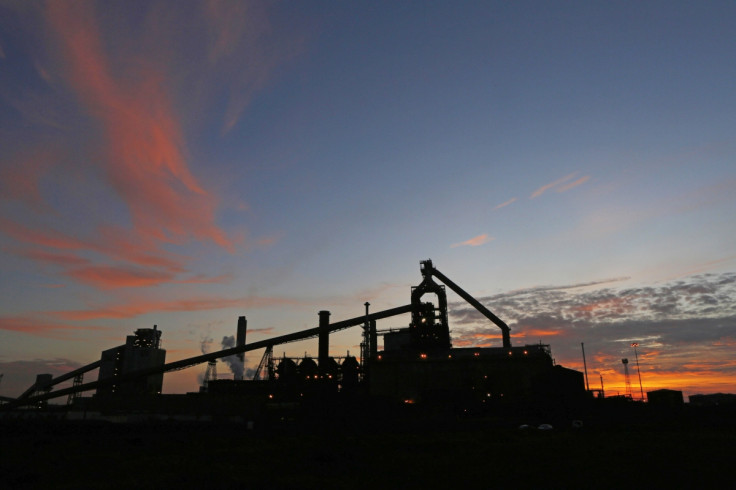Redcar and Tata Steel: Four reasons why the UK steel industry is struggling to survive

Shortly after 1,700 people lost their job in the chaos around the Redcar operations in Teesside, it was announced that 1,000 Tata steel workers might lose their job as well, as steel projects across the country struggle to even be profitable.
Paul Swinney, senior economist at the Centre for Cities, told IBTimes UK there are several reasons why the steel industry in the UK is fighting to even survive. "There's a longer term trend within more traditional manufacturing in the UK than just the obvious things that are going on now," he said.
1. Falling demand from China
Yes, obviously the cause named for falling commodity prices worldwide plays a role in the steel crisis. Copper, zinc and other metals have plummeted in value over the past few years, as demand from China's previously booming manufacturing sector is failing.
"This is obviously a big driver," Swinney said. "This low demand and oversupply pushes down prices and if your headline prices fall, then your costs have to respond otherwise you're starting to make a loss so that probably makes the cost pressures even more difficult."
However, experts have raised questions regarding to what extend the decline in China is actually responsible for the steel industry, especially in the UK. "If you look at Teesside in particular, this plant has been mothballed before, so there's a longer term problem there, trying to make it more competitive," Swinney said.
2. Increasing competition from other countries
While some say China is imploding, its efficient, low-cost manufacturing industry in the past has taken big customers away from operations in the UK. And across the board, in the Far East and Eastern Europe, low-cost plants offer lower prices to steel buyers.
"The steel industry depends more on cheaper labour and cheaper land and it is all about trying to keep that bottom line down, which means that the UK just can't compete on that front," Swinney said.
"We've seen a big rise in China and other far East countries more recently, but we've also had Eastern European countries being a popular destination for all these semi manufactures ... and this was reinforced when these countries joined the European union."
With lower minimum wages and property prices, non-Western plants can operate a lot more cheaply.
3. It is hard for the UK to be ahead of the curb
Even if, from these areas, competition becomes less severe as costs creep up, there is always another market to take over. "Of course, people will say, costs are rising in these countries as well and ask whether that is sustainable in the long term," Swinney said.
"Costs may well be rising but you can imagine it's still way short of the costs in developed countries such as the UK, such as Germany," he added. "As these areas become more expensive, other markets are starting to open up so, maybe North African markets will take over from them again."
4. The UK's economy has changed
"The real competitive advantage that the UK has is in high skills, high knowledge-type activities where lots of smart people are thinking about new ideas, trying to commercialise them, etcetera," Swinney said.
With half of young people in the UK going to university, and the high skill services sector thriving on the economic recovery, the economy and overall workforce is not exactly focused on a manufacturing-based economy.
"So on the one hand you have the UK doing so well in these knowledge-based-type activities where costs are less of an issue and the big challenge for these businesses is to find these high skills, educated people to recruit, where the UK performs very well," Swinney said.
In the Teesside area, for example, in the 1980s, around one in five working people worked in the manufacturing industry, while now, only 5% of residents do.
Some have called on the government to save the steel industry in the UK, while others have said it is time for the UK to let go of the industry and focus on the services and information sector. All in all, it is clear the steel industry will have to face some tough months, if not years.
© Copyright IBTimes 2025. All rights reserved.






















